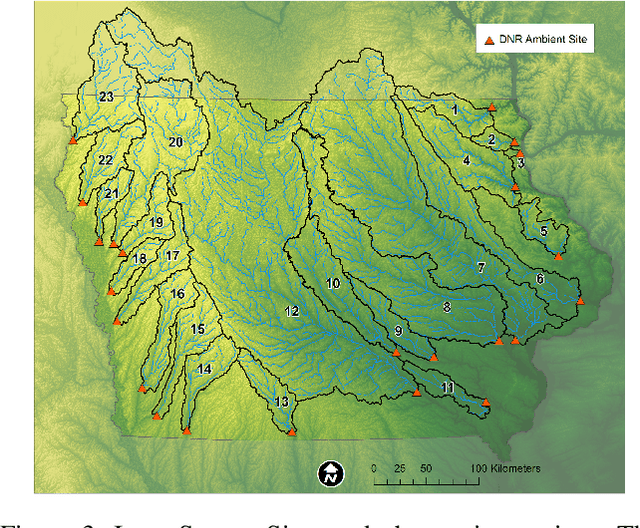HydroDeep -- A Knowledge Guided Deep Neural Network for Geo-Spatiotemporal Data Analysis
Paper and Code
Oct 09, 2020



Floods are one of the major climate-related disasters, leading to substantial economic loss and social safety issue. However, the confidence in predicting changes in fluvial floods remains low due to limited evidence and complex causes of regional climate change. The recent development in machine learning techniques has the potential to improve traditional hydrological models by using monitoring data. Although Recurrent Neural Networks (RNN) perform remarkably with multivariate time series data, these models are blinded to the underlying mechanisms represented in a process-based model for flood prediction. While both process-based models and deep learning networks have their strength, understanding the fundamental mechanisms intrinsic to geo-spatiotemporal information is crucial to improve the prediction accuracy of flood occurrence. This paper demonstrates a neural network architecture (HydroDeep) that couples a process-based hydro-ecological model with a combination of Deep Convolutional Neural Network (CNN) and Long Short-Term Memory (LSTM) Network to build a hybrid baseline model. HydroDeep outperforms the performance of both the independent networks by 4.8% and 31.8% respectively in Nash-Sutcliffe efficiency. A trained HydroDeep can transfer its knowledge and can learn the Geo-spatiotemporal features of any new region in minimal training iterations.
 Add to Chrome
Add to Chrome Add to Firefox
Add to Firefox Add to Edge
Add to Edge